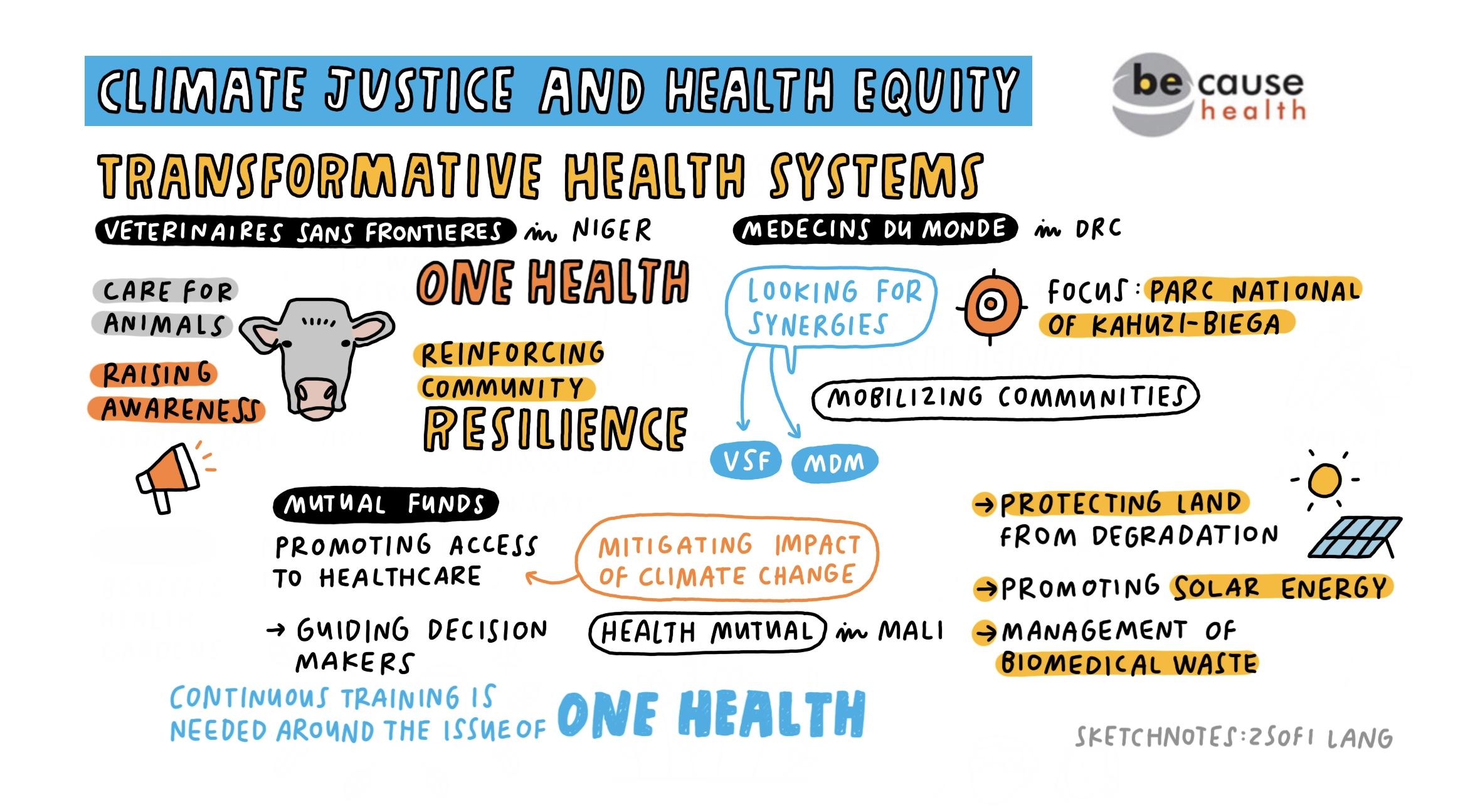
Together with Carlos Mediano, we look into innovative health systems that can strengthen people’s resilience against the climate emergency.
The climate crisis will require major changes in the ways health systems are conceived, planned and operated. Two different innovative approaches are explained by the international panel: One Health (by Louisa ben Abdelhahfidh and Issa Ilou) and health insurance systems (Laure Speecke and Issa Sissouma).

"The One health approach is the most inclusive solution for the NGOs facing the climate change emergency that already threatens people’s lives. We can’t see how we can address such a complex situation without keeping the three dimensions in our head: [human, animal and environmental health]."
The impact on human beings and animals and their interactions already prompts actions to increase the scope of “human-only” health to One Health. A project in the Tillabery region of Niger shows how care for humans and for cattle can overlap, especially in terms of prevention and early warning aspects. A theory of change and concrete plans of Médecins du Monde in Niger and the Democratic Republic of Congo also extend the ‘One Health’ concept to the natural environment and its wild inhabitants, among others for surveillance of emerging zoonoses.
In terms of organisation, the greater reliance on communities allows the emergence of innovative practices, such as broad mutualistic approaches, as was exemplified by the network of the Christian Health Insurance Fund in Belgium, collaborating with local initiatives in several Low and Middle Income Countries (LMICs). The example from Mali shows that improved access to health care increased resilience to the local effects of climate changes and are ways to improve the social determinants of health and to Health in All policies.
